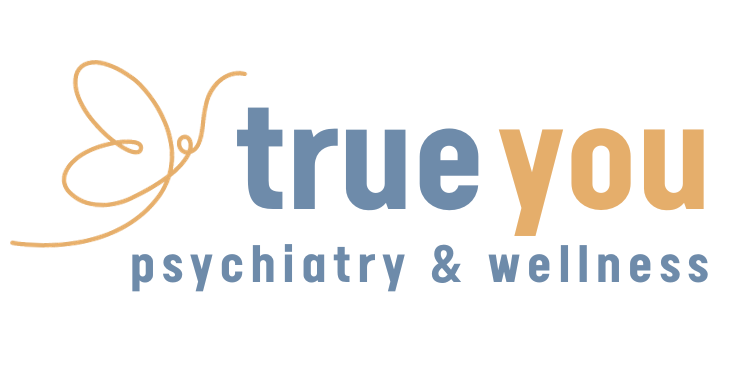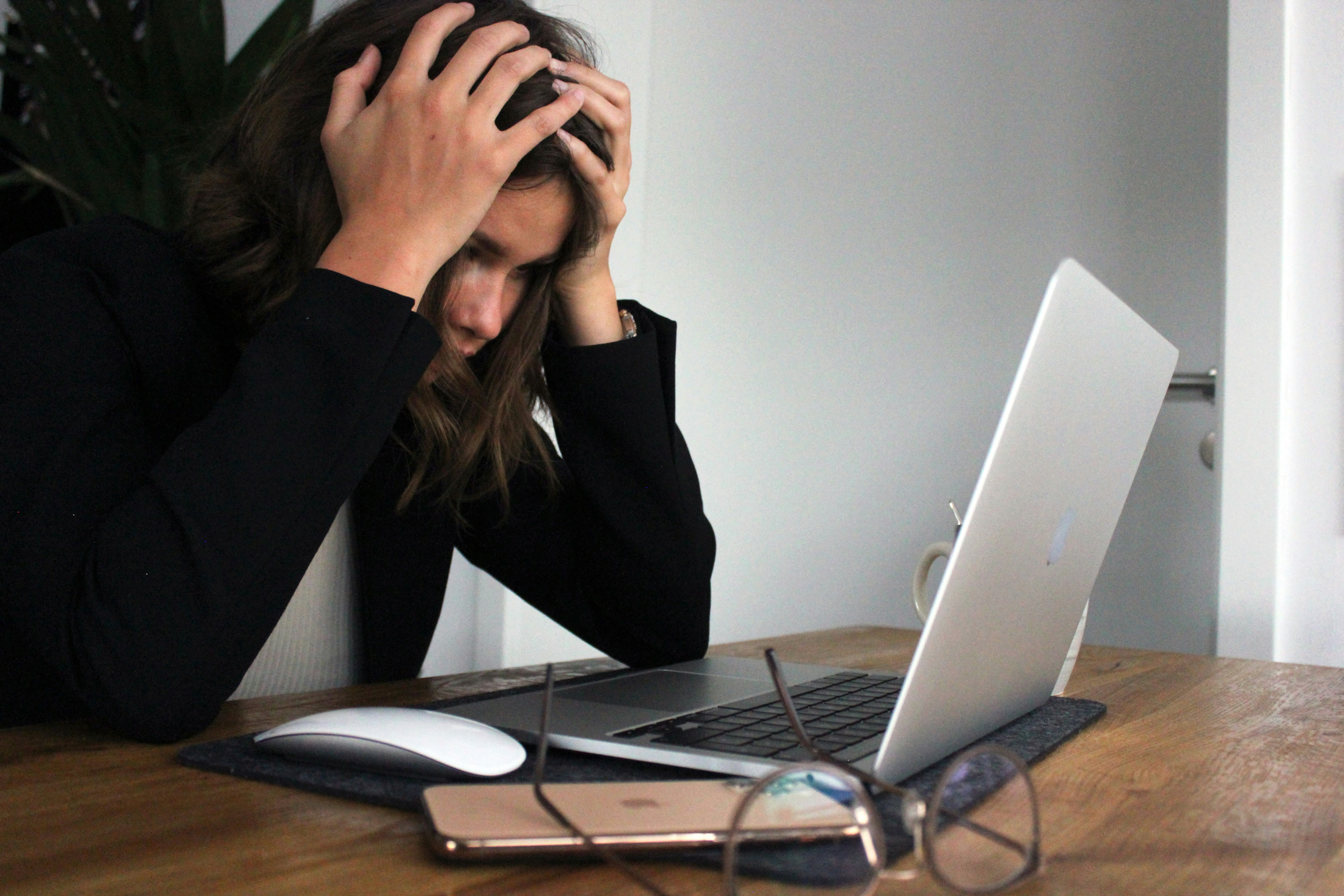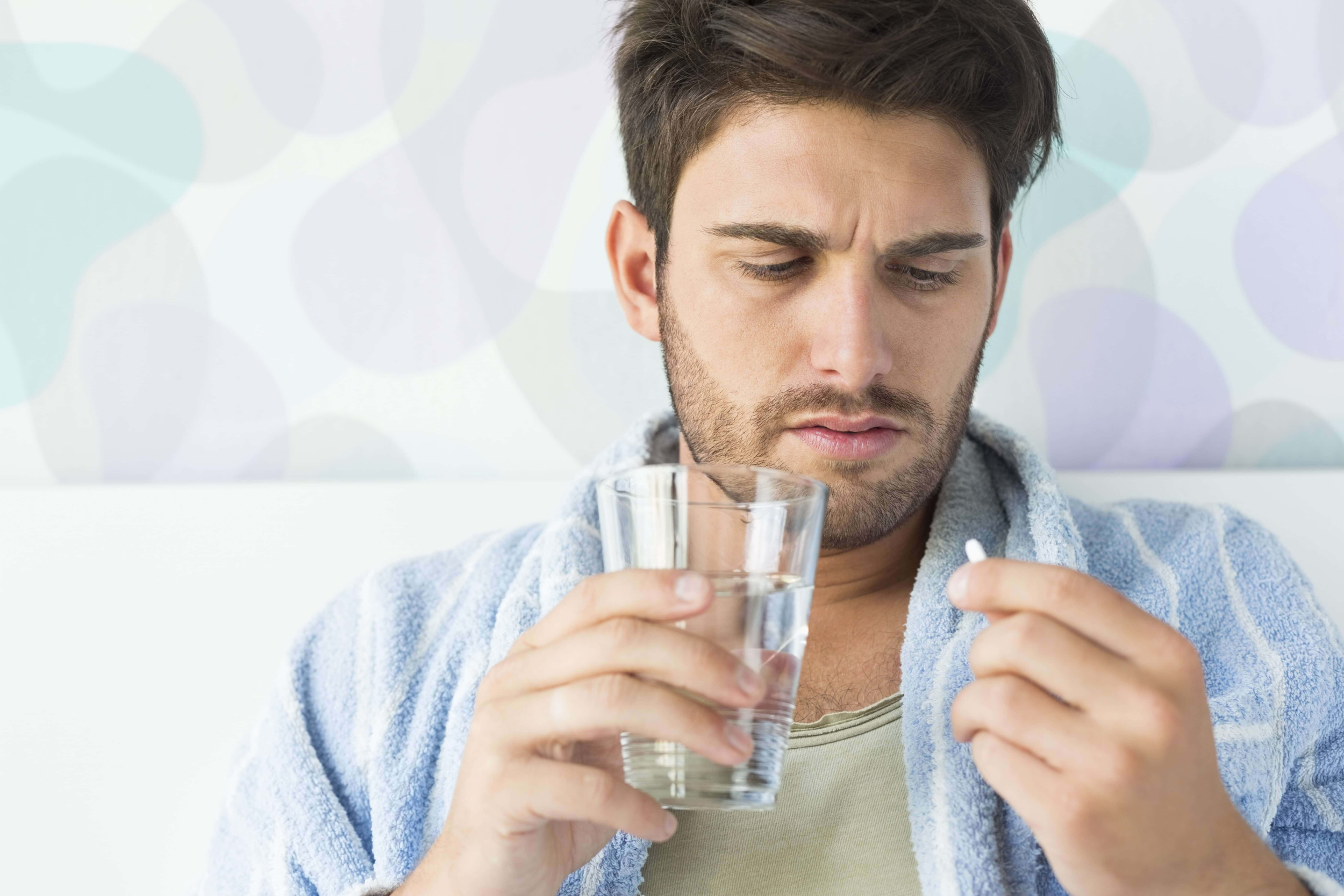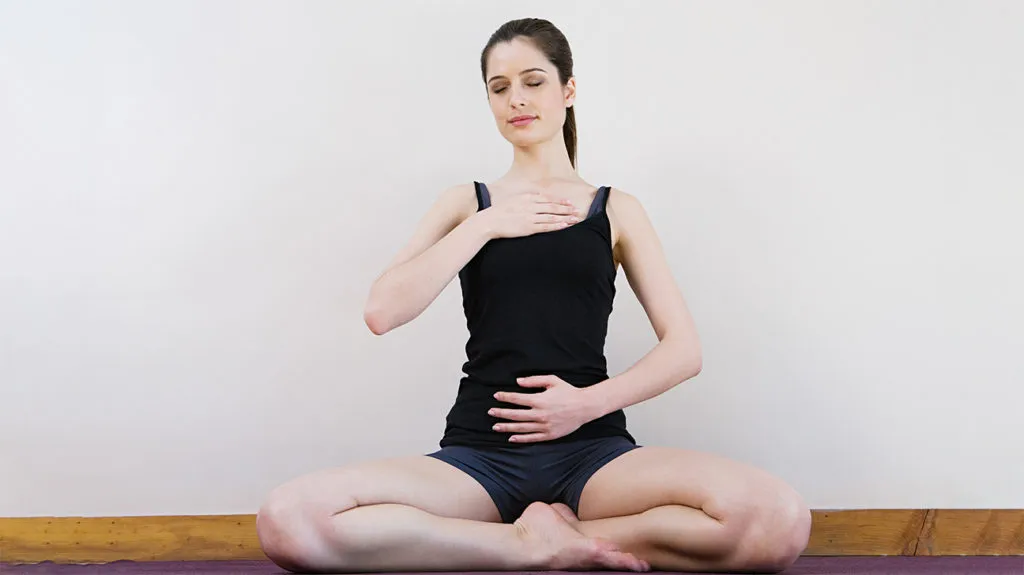Beyond Medications: Holistic Approaches to Taming Silent Panic Attacks
Do you ever feel like you're drowning in overwhelming fear and worry, even when there seems to be no apparent reason?
Like you’re going through something nobody else understands?
A lot of people explain silent panic attacks that way.
They can be as terrifying as a typical panic attack, but they're hidden—so there are no visible signs, making them hard to spot.
Did you know that about 10% of people will experience a silent panic attack at some point, even without a family history of panic attacks?
When it happens, the outward signs may not be so obvious, such as a racing heart or shaking.
This lack of visible signs can make you feel very alone, amplifying the emotional symptoms.
And afterward, all the silent suffering can make a person feel even worse.
A lot of people who have such attacks feel like nobody gets them, which stops them from seeking professional help or joining support groups.
But let me tell you: you are not alone.
This is more common than you might think.
And the best part is there are effective, natural coping strategies to get through these silent panic attacks... without taking medications.
Let’s explore how!
Understanding Silent Panic Attacks: What Are They?
Sometimes there are sudden bursts of intense feelings of worry and fear that happen without you being aware—a silent panic attack.
Instead of breathing fast, shaking, or feeling chest pain—the way you might during a typical panic attack, you start feeling really uneasy and distressed inside.
Some people are more likely than others to have silent panic attacks.
If you've been through difficult times in your life or have a lot of chronic stress, you might be more likely to have one.
Certain personality traits might also make it more likely.
If you are constantly thinking negatively or you want everything to be perfect, conditions such as Obsessive-Compulsive Disorder, it might be more likely that you'll experience silent panic attacks.
Specific triggers in your environment, including stressful situations at school or home, or physical factors like not sleeping enough or substance use (like having too much caffeine), can also bring them on.
So, during a silent panic attack, you might experience the following symptoms of a silent panic attack:
Uneasy or stressed out
Worried and not able to calm down
Angry or impatient
Like your muscles are tight, especially in your shoulders and neck
Sick to your stomach
Headache or feel dizzy
Like you don't have any energy and want to sleep
Like you can't think straight
Disconnected from others, like, even though you know you're not really, it feels like you're by yourself anyway
Some specific triggers for silent panic attacks include:
Stressful situations, like public speaking or taking tests
Scary thoughts, leading to overwhelming fear that you are going to die, get really sick, or fail
Chronic stress from seeing others fight, being bullied, or overworking
Environmental stressors involving family members fighting, feeling misunderstood, or being picked on at school or work
Lifestyle changes like not getting enough sleep or substance use such as having too much caffeine
The challenge with silent panic attacks is that it's difficult to recognize physical sensations when your mental state is unclear or confusing.
And of course, if you don't have overt physical symptoms when the attacks are occurring, you are less likely to tell someone and get help.
Silent Panic Attack Vs Anxiety Attack
Silent panic attacks differ from generalized silent anxiety attacks in several ways:
Intensity: These attacks are acute and intense, whereas generalized anxiety tends to be chronic but less severe.
Duration: Silent attacks are brief, often lasting minutes, while anxiety persists over longer periods.
Triggers: The attacks may occur spontaneously, whereas anxiety often stems from specific stressors.
Key differences between the two further clarify the distinction:
Silent Panic Attacks:
Absence of conscious knowledge of symptoms
Mild, internal physical sensations e.g., tight muscles, stomach pain
Emotional symptoms include unease, restlessness, anger, impatience, impending doom
Cognitive effects may lead to trouble concentrating
Triggers often include stressful situations, fears, chronic stress, and physical factors like lack of sleep or caffeine consumption
Anxiety Attack:
Conscious knowledge of symptoms
Physical manifestations such as hyperventilation, shaking, chest pain
Emotional symptoms involve worry, inability to calm down
Common cognitive effects include emotional disconnection
Triggers encompass various fears, environmental factors, and physical factors
Why Holistic Approaches Can Be More Helpful Than Medication?
You've probably tried to take your medication and found it's still not working, right?
Using holistic approaches for dealing with silent panic attacks can be better than medicine alone for a lot of reasons.
For one, medicine doesn't work for everyone with silent panic attacks or a panic disorder.
Research has shown that while drugs can help some people with panic disorders, they don't work forever or they come with side effects.
Some prescription medications, like selective serotonin reuptake inhibitors, come with such strong side effects that they are difficult to tolerate.
And today we understand that taking a medication on a daily basis can lead to physiological dependence on it.
This is why holistic approach becomes essential for a risk free treatment.
6 Holistic Approaches to Address Silent Panic Attacks
Beyond medications, here are some holistic treatment options to deal with silent panic attacks for long-term results:
1. Recognizing Triggers and Early Warning Signs
Growing self-awareness is the first step that can help you deal with silent panic attacks.
These include noticing what events, thoughts, or feelings may trigger your attacks.
Note any patterns that show up in your internal and external surroundings.
The early warning signs of an upcoming attack must also be recognized.
Sudden physical sensations like dizziness, tense muscles, or emotional changes like worry or a feeling that bad things are about to happen can be among these.
Knowing these early warning signs will help you step in before the situation worsens and use coping mechanisms to avoid escalation of the symptoms.
2. Diaphragmatic Breathing
The body's normal way of relaxing is set off by diaphragmatic [belly] breathing.
This relaxation technique activates the nervous system to promote calm.
Don't try to do it in a rush. Instead, take slow, deep breaths that expand your stomach instead of your chest.
Here's how to practice diaphragmatic breathing:
Take a seat or lie down in a safe space.
Position one hand on your chest and the other on your stomach.
As you take deep breaths in through your nose, let your stomach rise and keep your chest still.
When you breathe out through pursed lips, your stomach lowers.
Do this for two minutes and focus on how your body and breath feel as you do it.
By making these relaxation methods a part of your daily routine and using them when you're feeling stressed, you can learn how to handle silent panic attacks and find calm in the present moment.
3. Building Resilience Via Lifestyle Modifications
While immediate coping strategies are important, silent panic attack management requires long-term resilience as well.
This requires lifestyle changes that improve well-being and minimize stress and anxiety. So, how can you do it?
Exercise
Physical activity is essential to a healthy lifestyle and anxiety management.
Exercise boosts mood-lifting endorphins, which reduce tension and anxiety.
Physical activity also improves sleep, another important silent panic attack management tool.
Most days, engage in moderate physical exercise for 30 minutes.
This can be brisk walking, swimming, cycling, or any other fun activity.
Restful Sleep for Mental Health
Sleep is important for mental health and emotional stability.
Stress and anxiety might cause silent panic attacks while we're tired.
Set a sleep pattern, create a peaceful nighttime routine, and optimize your sleep environment to get 7-8 hours of great sleep each night.
Balanced Diet
Food greatly affects our mood and energy.
A balanced diet of unprocessed, nutrient-dense, whole foods gives your body the nutrients it needs to perform well and handle stress. Reducing sugary drinks and caffeine—common forms of substance use—can boost emotional health.
4. Connection Power
Handling silent panic attacks can make you feel alone, but you're not.
When things are tough, having a strong support system can give you emotional help, encouragement, and a sense of belonging.
You can do it by:
Therapy
Therapy can help a lot when it comes to dealing with panic attacks.
Seeing a mental health professional can help you figure out what makes you anxious, such as past stress, negative thought patterns, and unresolved problems.
To help you deal with your problems and get stronger, they can also teach you Cognitive Behavioral Therapy (CBT) and exposure therapy.
Book an appointment with holistic psychiatrists like Dr Jennifer Giordano for an effortless recovery from silent panic attacks. Her expertise covers dealing with such attacks without pressurizing medicines!
Groups that help people:
You might feel better after talking to people who also have silent panic attacks.
In support groups, it's a safe space to talk about your problems, get help from other people, and learn how others deal with stress.
Being connected and feeling like you belong can help you feel less lonely and heal faster.
Also, building a strong support system can get you the tools, support, and understanding you need to feel better emotionally.
Don't forget that asking for help is bravery and can help you get over your mental health issues.
5. The Gut-Brain Link
A recent study highlights the gut-brain axis. It reveals that our gut microbiome - the trillions of microorganisms in our digestive system - may affect mental health.
Imbalanced gut flora may cause anxiety, stress, and silent panic attacks/episodes.
On the other side, healthy and diverse gut flora may increase mood and stress-regulating serotonin production.
Interestingly, certain meals may help with silent panic attacks, including:
Fermented foods like sauerkraut, kimchi, kefir, and yogurt, which include gut-friendly probiotics
Probiotic-rich foods like tempeh, kombucha, and miso, which may boost gut health
Prebiotics in vegetables, fruits, and whole grains that feed gut microorganisms
Omega-3-rich foods like salmon, tuna, and sardines, which improve mood and reduce anxiety
In combination with other holistic treatments, diet adjustments may help silence panic episodes like magic.
You can get in touch with a health care provider to make a good treatment plan for you!
6. The Power of Nature
Nature has many emotional and physical health benefits and can help you manage silent panic attacks.
A walk in the park, a hike in the forest, or even sitting by a trickling brook can relieve stress and promote serenity and peace of mind.
Nature can calm anxiety and silent panic episodes by activating the parasympathetic nervous system, which relaxes.
Nature immersion also improves mood, focus, and connection to something greater, which boosts well-being.
Even in modest doses, nature can restore your energy and quiet your silent panic episodes.
Remember that even a few minutes outdoors might improve your mood.
FAQs - Get More Answers Here!
-
Many people find their way to relief without using medications. Relaxation techniques, lifestyle changes, and self-care are commonly prioritized in holistic approaches and can, with consistent practice, provide substantial relief. Medication should only be used after a health care provider has done an assessment of intense physical symptoms.
-
Silent panic attacks are a common symptom of an anxiety disorder, but they can also occur with depression, Post-Traumatic Stress Disorder, or Bipolar Disorder. Consult a mental health professional if you have persistent poor mood, hopelessness, or flashbacks in addition to silent panic episodes.
-
A holistic approach's efficacy and timeline rely on the individual and their silent panic attacks. However, patience and persistence are essential on this road. Some get results in weeks, while others take months. Working with a mental health professional can help tailor the most effective treatment for you.
Conclusion
"Silent" panic attacks are tough.
They're difficult to endure and impossible to see due to the lack of outward signs.
Sometimes, people who have them don't ask for the help they need because they feel like they're all alone and there's no hope.
But hope is always there.
You are not alone.
You can find people out there who understand what you’re going through, like Dr. Jennifer Giordano, a holistic psychiatrist who understands natural and compassionate ways to deal with mental health issues.
They’re there. You can get help.
Dr. Giordano knows a lot about anxiety and panic attacks.
She explains it, “Panic attacks can be the most terrifying level of fear in the body – physically, mentally and emotionally. It’s a 30-minute experience of the fight-or-flight response, and nothing can convince you that you’re not going to die.”
Through your journey, you'll likely experience healing.
When your health returns, so will the feeling of peace and happiness that you once knew.







